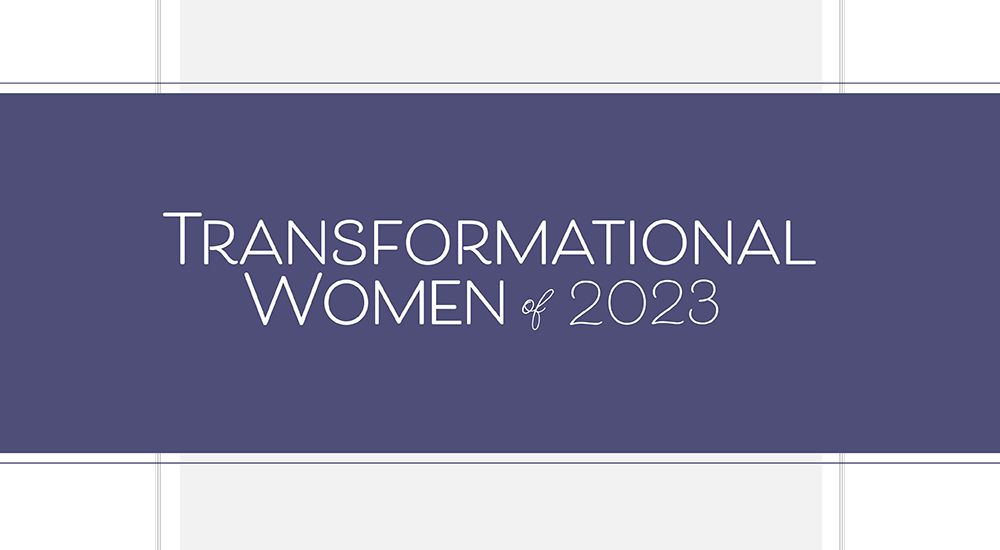Family Business Magazine's 2023 list of Transformational Women in Family Business showcases exemplary leaders who are preserving their families' legacies while propelling their businesses into the future.
Their companies illustrate the wide range of industries that can thrive under family leadership: Some make food — tea, tortillas or salt. Others build, developing real estate or working on construction projects. Still others sell specialized products, such as cables, chemicals and optics.
This year's honorees — who serve as CEOs, presidents or directors — come from both coasts of the United States and in between. Some have worked their whole careers in the family business; others are bringing to their families' companies the skills and experience they gained in other industries. A few have dual careers, leading the family business while also pursuing other work – and letting each role enhance the other.
Finally, these women's stories illustrate the deep connections that family businesses reinforce: between generations of family members, between families and the communities where they do business, between businesses and customers.
These women were chosen by a panel of Family Business editorial staff members and advisers.
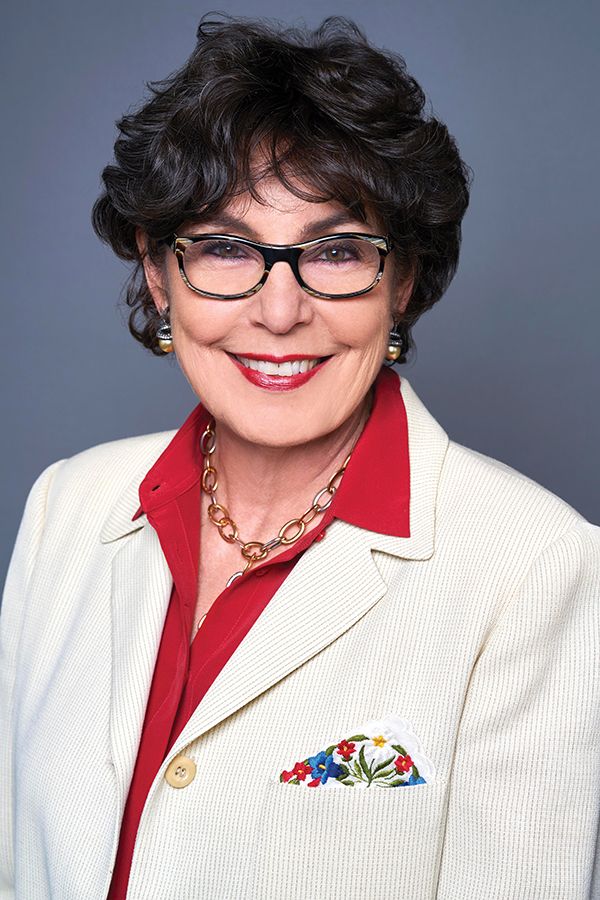
CROSS-POLLINATION
Lisa Quateman | CEO | Belldale LLC, Los Angeles, Calif.
As the first grandchild in her family, Lisa Quateman anticipated that someday she would need to manage the Southern California real estate portfolio her grandparents had built.
“I wanted to be prepared with a strong background,” Quateman says. So she went to law school, studying real estate and trust law.
This launched her into a dual career: overseeing her family's small, closely held company — now called Belldale LLC — while building a successful legal career, ultimately as a senior partner at a national law firm, Polsinelli. Today, she has retired from the firm and serves on a number of corporate boards.
“The law career helped the family business, and the family business helped the law career,” Quateman says. “Being a businessperson helped me be a better lawyer and a better board member, because I've been running a business too.”
Quateman's experience as an attorney helped her manage a transition in the family business. For years, she ran the business as trustee for her grandparents. After her mother's death, the family established the LLC. This moved the family business from one in which Quateman was the sole trustee, making unilateral decisions, to one in which the responsibilities of the family members are more clearly outlined.
“It became more of a democracy – other family members have input now,” Quateman says.
Today she is one of three family owners of the company, though there are additional family members who Quateman anticipates are likely to become owners in the future.
She has been using Zoom sessions to teach family members about the business, one property at a time.
“I tell the story of the property,” Quateman says. “How did the family get the property? Who are the tenants? What issues have come up? The tutorials are trying to teach things that are not necessarily jumping off the page of the documents, giving life to the properties.”
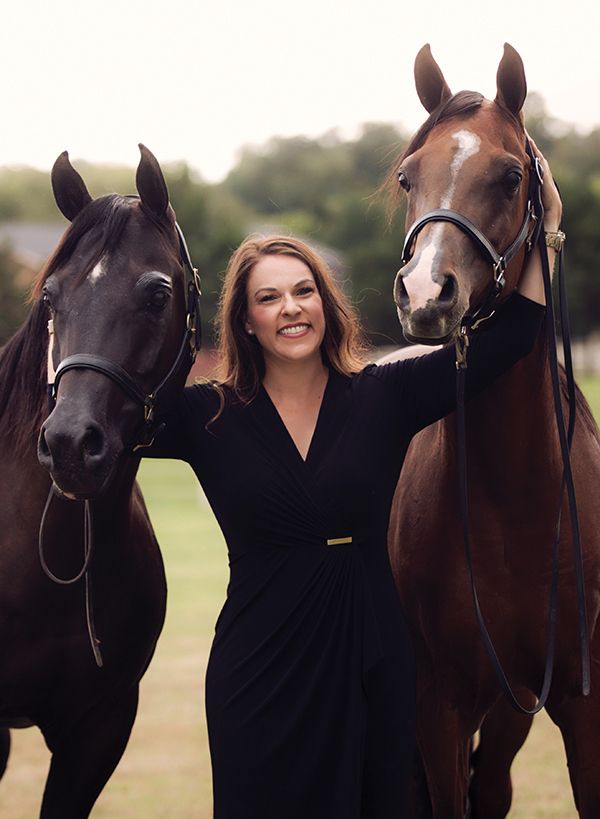
LEGACY
Jessica P. Anderson | President | Anderson Concrete Corp., Columbus, Ohio
In 2021, the year Anderson Concrete celebrated its centennial, it named a new president: Jessica P. Anderson, the great-granddaughter of the company's founder.
Anderson Concrete is one of three related companies owned by the family. Anderson started working for one of them, Buckeye Ready-Mix, during college.
“I fell in love with the culture and the people in this industry and I never left,” Anderson says. “I love how down-to-earth all the people are. Everybody is incredibly hardworking, genuine and authentic.”
Anderson loved the industry, but she didn't see herself as a leader until the company started having conversations about succession.
“There was a lot of self-doubt and stress,” Anderson says. “Once I made the decision that I'm going to do this, a lot of that stress disappeared.”
Since taking over, she has been getting to know the company's customers.
“My dad had a great relationship with his customers, and I remember meeting a lot of them when I was younger,” Anderson says. “I still work with a lot of them.”
She has also been increasing her visibility with employees.
“I've done ride-alongs, which are a great opportunity for me to get to know the drivers and ask them questions about how we can be better,” Anderson says.
And she has been focusing on big-picture goals, such as the company culture, particularly regarding safety.
“We've been a safe company all along, but we're trying to take it to another level,” Anderson says.
Her work builds on the company's legacy.
“The mission, vision and values tell the story of our company that goes back decades,” Anderson says. “I'm trying to anchor into those values and make sure everybody knows what they are and lives them every day.”

COMMUNICATION
Linda Neale | Director | Leupold & Stevens, Inc., Beaverton, Oregon
Linda Neale's extended family made a decision 25 years ago: They wanted their family business, sports optics manufacturer Leupold & Stevens, Inc., to remain family owned. To accomplish this, they needed better communication between the approximately 65 family shareholders and the company's board.
“It's a rarity to have a 116-year-old family company,” says Neale, who has served on the board for 19 years. “When a company grows over time and has many shareholders, like we do, good communication depends on shareholders feeling connected to the company and each other. Without that, companies are more likely to be sold.”
To prevent that, the family formed a family council — which Neale has chaired in the past — and created a family charter. They developed a more organized process for choosing board members. They established a family values committee within the board. And they created a position for a shareholder relations manager to facilitate communication.
“The manager is putting out newsletters with stories – the history of the company, but also current stories about what people are doing in their lives,” Neale says.
The result: stronger connections between family members.
“The connection you have with other shareholders is one of the most important factors in long-term ownership,” Neale says. “Without that, when you get into the realm of second and third cousins twice removed, you may not even know their names. I notice in my daughter's generation, the fifth generation, they now talk to each other, and many are friends.”
Shareholders also feel a greater connection with the business.
“Some of my cousins in the fourth generation didn't even know that they had any connection to the company until they were 30 years old,” Neale says. “That doesn't happen anymore.”
Neale is getting ready to retire from the board.
“My role on the board has been to consider the impact of our decisions on the next 100 years of family ownership,” Neale says. “That's a different role than that of management or outside directors. But that's the decision that we made: to retain family ownership, and I've taken that seriously.”

REINVENTION
Amy Hall | Former President | Ebony Construction Co., Inc., Sylvania, Ohio
Entrepreneur | Armstrong Steel Erectors, Newark, Ohio
In 2003, Amy Hall was living in Atlanta, selling pathology services to doctors and pregnant with her youngest son. One Sunday in August, her father — the owner of Ebony Construction, an asphalt paving, milling and material supply company — passed away suddenly.
“I flew home that day,” Hall says. “I buried him on Thursday, and I was named president of the company the following Monday. Until then I had had very little interaction with the company.”
Hall's mother had founded the company in 1986, and her parents ran it together for a time. Her mother later left the business, and her parents divorced — so Hall inherited the company on her father's death.
Her advisers told her to sell. But she felt an obligation to the company's longtime employees.
“I'm a big believer in trusting your instincts. I knew I had to move home,” Hall says. She and her family moved back to Toledo. “I did not want to get to 10 years later and say, ‘I wish I had done this.' Sometimes you just step out on faith.”
At Ebony, she learned the business — and made it grow. She became active in professional groups, becoming the first woman of color to serve as board chair for the Ohio Contractors Association and on the board of the Associated General Contractors of America.
“I've been so fortunate that an industry that historically has not had a lot of women and women of color in it has been extremely good for myself, my company, my family and all of our employees,” Hall says.
And now her journey is taking her in another new direction. In August 2022, she and her oldest son bought a bridge construction company, Armstrong Steel Erectors, in Newark, Ohio.
“Selling Ebony to two longtime employees was a legacy I wanted to leave,” Hall says. “Our family legacy continues, but it's taking a little different shape.”

CONNECTIONS
Mayumi Allison | CEO | Hosa Technology, Inc., Buena Park, Calif.
Hosa Technology's tagline is “connecting what moves you” — an apt description of a business that supplies analog and digital connectivity solutions to the musical instrument and professional audio industries. Mayumi Allison joined the business — which her father started in 1984 after years working in the industry — 12 years ago and gradually took over the leadership from her father.
“Selling cables didn't seem all that exciting to me,” Allison says. But with an undergraduate degree in business (she later got an MBA as well), she was the natural candidate. Through her previous work in the mortgage banking industry, she had gained perspective and skills.
She used that knowledge as a guide when first learning about the industry, building on her father's legacy to bring operational efficiencies to the company.
“I didn't know anything about the music industry or anything about cables, so I was a little nervous coming into the family business,” Allison says.
She discovered that her father had built deep relationships and a good reputation in the industry.
“The musical instrument industry is small,” Allison says. “It's all about relationships, and my dad built some pretty amazing relationships along the way. It was something I wanted to continue.”
The cable industry is consolidating as consumers move to wireless connections, and ecommerce has brought expanded competition.
“Finding ways to stay relevant and gain market share in an industry that is changing can be a challenge,” Allison says. “It's all about having a relationship with our customers. We pride ourselves on being a company where you can pick up the phone, talk to somebody and get an answer.”
They are also expanding their marketing efforts.
“My dad was old school, and he believed in word of mouth,” Allison says. “Now we're telling our own story. We're trying to bring the human element into our brand. Because at the end of the day, for most people a cable might just be a cable.”
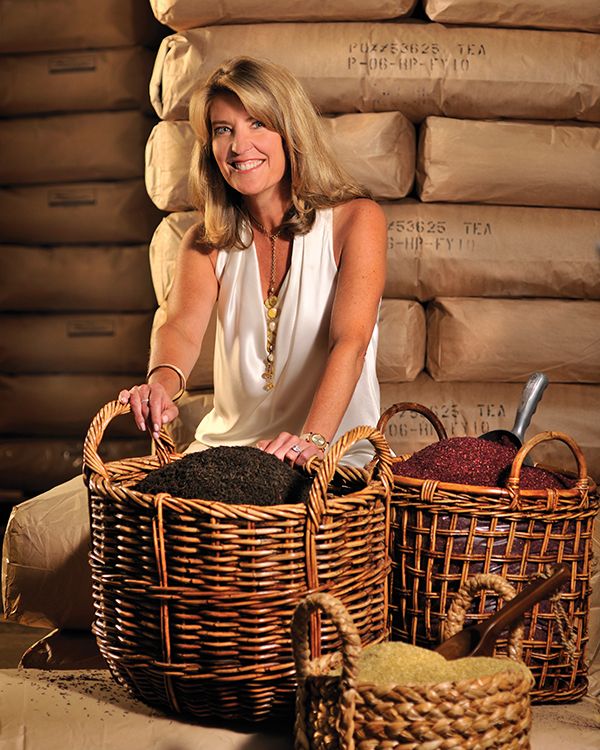
SUSTAINABILITY
Cindi Bigelow | President and CEO | Bigelow Tea, Fairfield, Conn.
Cindi Bigelow's parents would hold taste panels for Bigelow Tea at their home when she was growing up. “On my way to the refrigerator for a snack, I'd have to drink some Darjeeling tea,” she says.
By high school, she knew that she wanted to run the business that her grandmother had founded and her parents expanded. She took marketing classes, then focused on finance and marketing in college. After college, she worked for Seagram's for two years, then received her MBA. After that, she joined the family business — and in 2005, she became the third-generation president and CEO.
Now she is focused on making Bigelow Tea environmentally friendly, looking at everything from recycling to energy consumption.
“When you produce over 2.2 billion teabags a year, you have to be very sensitive to the potential waste,” Bigelow says. The company's teabags are 100% compostable, and the manufacturing facilities are zero waste to landfill. Bigelow Tea tries to reduce, reuse or recycle all material and use 100% renewable energy.
“We have achieved a lot of sustainability goals that I'm very, very proud of, and we continue to push in that area,” Bigelow says.
The company also is focused, along with the rest of the botanical industry, on the effects of climate change, working with their suppliers to ensure the long-term supply of the more than 200 ingredients they purchase from all over the world.
“Where it comes from, the time of year, the location, season, climate – all of that significantly impacts the flavor profile,” Bigelow says. “You need to be planning what your crops are going to look like in five or 10 years.”
The company also continues to innovate when it comes to its products. One recent venture: Bigelow Tea worked with another Connecticut business, Stony Creek Brewery, to create two new tea-infused craft beers — part of what Bigelow calls “innovation inside and outside the teabag.”
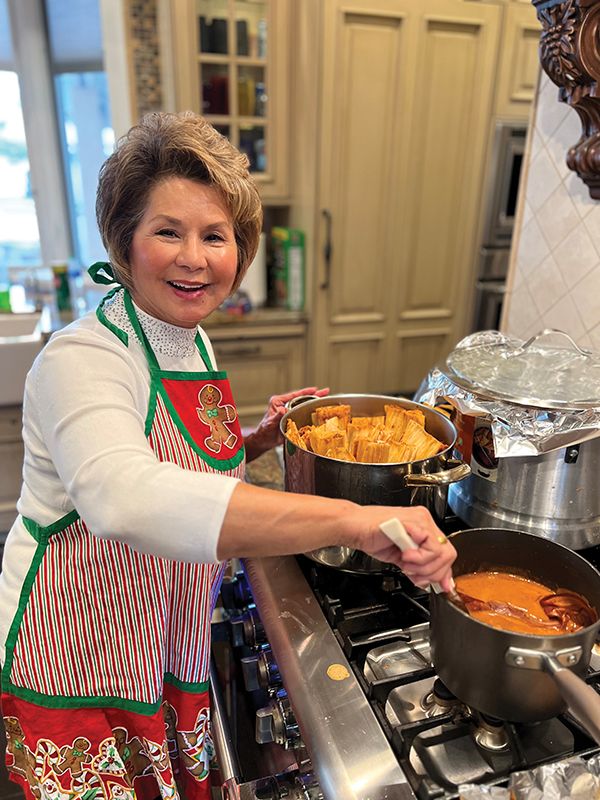
ENTREPRENEURSHIP
Helen Chavez Hansen | President and CEO | La Tapatia Tortilleria, Inc., Fresno, Calif.
Helen Chavez Hansen founded La Tapatia Tortilleria in 1969 as “a side job for extra income,” she says. Today, it is a flourishing family business: Hansen, her four daughters and one son-in-law all work for the company.
Back in 1969, when she learned that the owner of a corn tortilla business was retiring, she used her savings and some help from her parents to buy the equipment needed to start the business. She learned to run it while keeping her day job with a company that sold feed grain.
“I'd get up at 2 in the morning. We'd work three hours making corn tortillas, and then I'd leave and the cook would stay and clean up,” Hansen says. She would return to La Tapatia in the evening. “I was 23 then – when you're that young, you don't need as much sleep.”
After about seven years, she gave up the day job. She expanded the company — adding flour tortillas, then chips to its product line. She learned to export products, and to make local sales.
“I would drive to a store, check it out, and come back with a plan for how to get into that store. I was afraid, but I was fearless,” Hansen says. When she was turned down, her response was, “I'll be back.”
Hansen has overcome many obstacles — not least during the past three years. Two years ago, her husband died. Nine months later, a fire destroyed the tortilla chip manufacturing plant, taking one-third of the business with it. (They could continue production of corn and flour tortillas.) All this was in addition to the challenges of the COVID-19 pandemic. But Hansen is looking to the future.
“We are rebuilding the tortilla chip building, hoping to be back in business by July of this year,” Hansen says.
She is also working on succession planning — but she has told her daughters, who now have 49% ownership in the business, to remember that family comes first.
“I don't want families splitting apart,” Hansen says. “It's really important that they stay as a unit.”
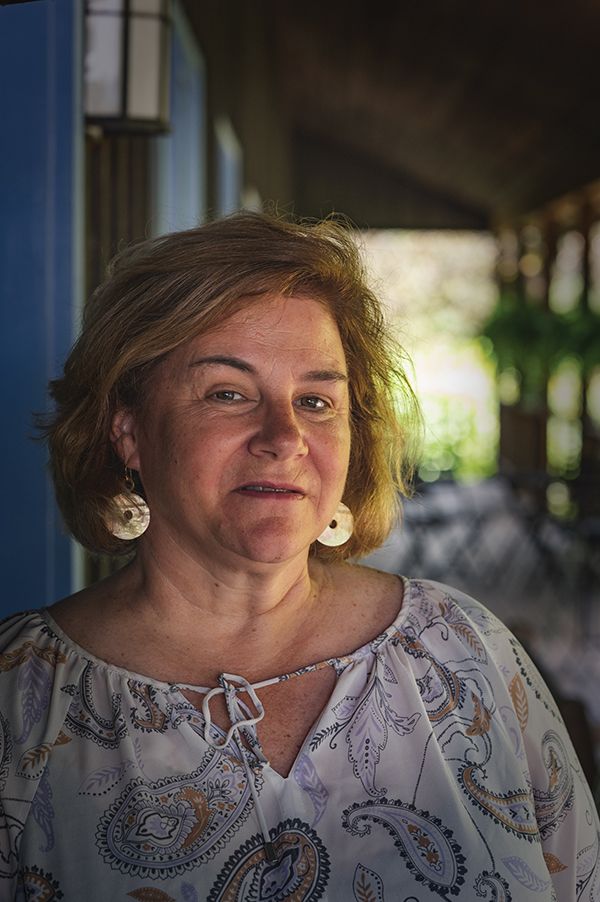
STEWARDSHIP
Nancy Payne Bruns | CEO | J.Q. Dickinson Salt-Works, Charleston, W.Va.
Chairman of the Board | John L. Dickinson Family Holdings, Charleston, W.Va.
Nancy Payne Bruns' family has been in business in West Virginia since 1817, when they started making salt from an underground aquifer. But although the family was successful in business — mining timber and coal as well as salt, becoming prominent West Virginia landowners, and starting a bank that became the largest in the state — they got out of the salt business in 1945.
“Even though I grew up there, I really didn't have any knowledge about our salt history,” Bruns says. That changed during her career as a chef. “I got very interested in salts from around the world and then got drawn into our family history. It became a passion project to get this revived.”
She and her brother did revive it, founding J.Q. Dickinson Salt-Works in 2013. The property where the original salt business was located was still in family hands, so she and her brother leased the property from their cousins.
The new salt production company aims to have a “very low environmental footprint,” Bruns says. “We are not burning fossil fuels to stoke the furnace. I'm sure my ancestors are wondering what I'm doing, because they didn't have any clue about environmental impact when they were doing it.”
Bruns is also taking this forward-looking approach to the rest of the family's businesses as chairman of the board of John L. Dickinson Family Holdings.
“We're lucky to have gotten to seven generations, and we did a good job. But that's very unusual, and to keep it up, we've got to really reinvent ourselves and start new businesses,” Bruns says. “Most of the mines on our property have matured, so we have been looking at other things to do with the land.”
They are harvesting timber at a sustainable rate, for example, and they just started Dickinson Renewables, a renewable energy business.
“Stewardship is one our main values as a family,” Bruns says. “It's my goal to make our land productive and be an economic driver for the state.”

EXPLORATION
Jamie Shah | Managing Director | Chem-Impex, Wood Dale, Ill.
Jamie Shah explored a number of career paths — investment banking, tech, venture capital — before finding that her interests were leading her to the business her father founded in 1981: Chem-Impex, which sells lab chemicals to pharmaceutical companies and universities.
“It all kind of pieced itself together: The thing that I want is right in front of me,” Shah says.
Today, Shah describes her role with the company as serving as “an integrator of my father’s vision to the rest of the company, creating alignment and visibility across the organization.”
In addition to working with her father, mother and twin sister in the business, she is working to broaden students' horizons as an adjunct assistant professor of entrepreneurship at the University of Chicago Booth School of Business.
“My goal is to really shine a light on the beauty of family businesses: this idea that you can create generational, long-term wealth for you, your family and your community,” Shah says. “The majority of businesses out there in the world – people aren't trying to sell them. But in business school, I don't think I ever heard a lecture about this idea of running a business forever.”
In her class on closely held businesses, she explores what makes family businesses different and more successful than non-family businesses. She told the class about her father and invited him to a class meeting.
“I try to be an open book to my class – we don't have everything figured out,” Shah says. “We don't necessarily have a full succession plan. We're committed to the idea that my sister and I will take over the business from our father, but we know it's a very long-term process.”
And she is learning along with her students.
“It forces me to be continuously thinking: How do we run our business in a way that is sustainable as a family and as a business?” Shah says.
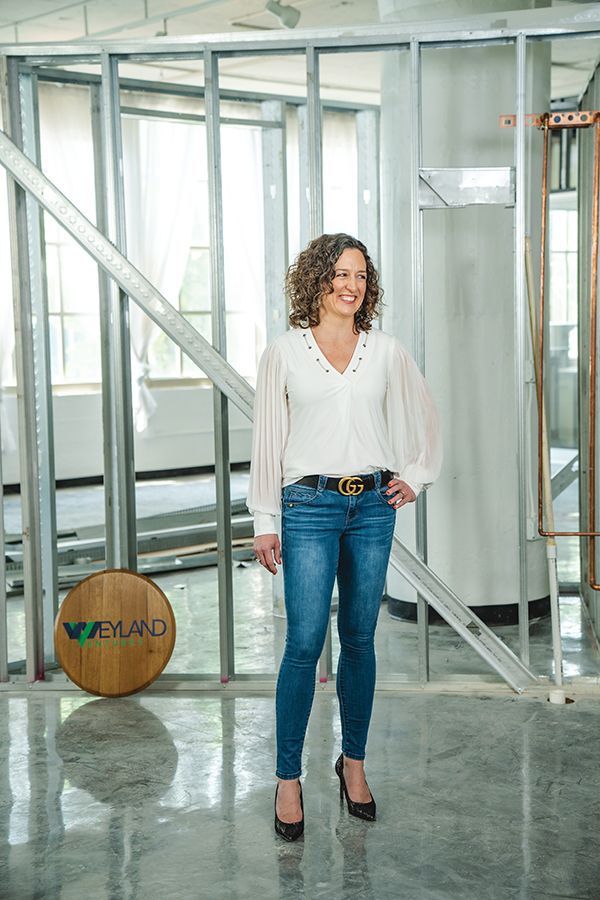
COMMUNITY
Mariah Gratz | CEO | Weyland Ventures, Louisville, Ky,
When Mariah Gratz left a career in medical device product development to join the family real estate development business, she found her experience useful – up to a point.
“Real estate is still a product,” Gratz says. “But it's a very different product than medical devices – I had to learn to be more community oriented and more comfortable engaging with the public about what we were doing.”
Part of that community orientation came naturally. Born and raised in Louisville, Gratz learned about the importance of community involvement by watching her parents and grandparents. Today she serves on several community boards including the University of Louisville Real Estate Foundation and Greater Louisville Inc.
But Weyland Ventures, which her father founded 30 years ago and which she has led since 2016, is bound to the community as well.
“We're not a typical developer that may come in and get the project done, then be off to the next thing,” Gratz says. “When we go into a project, we're looking to operate it for at least 10 years.”
Weyland renovated, and now runs, The Henry Clay, an event venue in downtown Louisville that is on the National Register of Historic Places, as well as the surrounding block.
“We were able to take a block that was vacant and really a detriment to downtown, and with a phased development strategy we were able to bring it back,” Gratz says. “There are people in that area 24/7 now – it's brought a lot of energy into that part of downtown.”
More recently, Weyland launched a series of boutique hotels, the Common Bond Hotel Collection, in the heart of Kentucky's bourbon country. The new venture brings the company's community focus to smaller cities.
“We have a 30-year reputation of doing projects that have been positive for the community,” Gratz says. “We take a longer-term view, and I think that comes from being a family business.”


